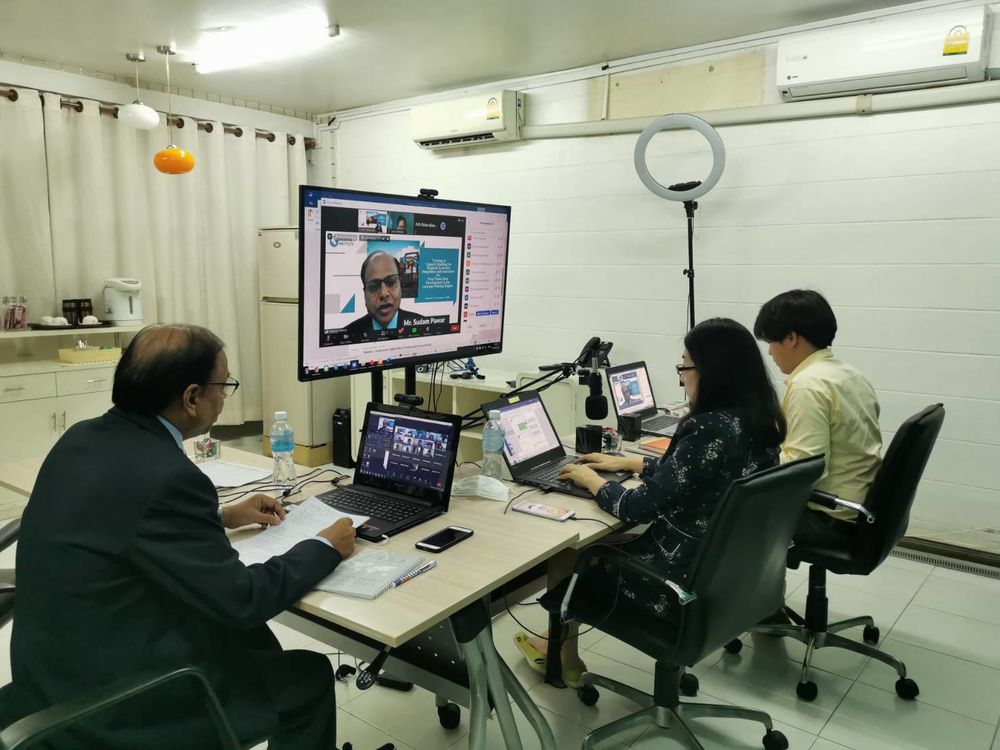Mekong Institute (MI) rolled out the e-training course on “Capacity Building for Regional Economic Integration and Innovation for Free Trade Zone Development in the Lancang-Mekong Region” from November 22 to December 4, 2020.
Practical sessions were provided to 36 government officials and academic representatives from Cambodia, P. R. China, Lao PDR, Myanmar, Thailand, and Vietnam to enhance their English communication skills and understanding of cross-cultural communications. The activity also introduced international and regional concepts and practices of free trade zone (FTZ) development, with focus on P.R. China’s FTZ Pilot Program so participants will be equipped to develop and contribute to future FTZ development in their respective Lancang-Mekong countries.
“Communications is the engine for effective development and FTZ is one of the key tools to promote regional economic integration and cooperation,” Mr. Sudam Pawar, MI’s Director of Innovation and Technological Connectivity, said during the opening session.
The four-course online module included sessions from experts such as Dr. Matthew Robert Ferguson, Mahidol University’s Program Director of English Studies, Humanities and Language Division, who provided theoretical and practical sessions in public speaking and cross-cultural communications. Prof. Dr. Alex Jun Han, Assistant Dean for International Affairs, the Belt and Road Research Institute (Shenzhen), also presented the importance of regional economic integration, as well as FTZ legal frameworks and types, while Dr. Min Zhang, CEO of HCIT.ai; Mr. Zhen Wang, Deputy Director of Department of Regional Development Planning, China Development Institute; and Professor Dr. Yiming Yuan, Deputy Director of China’s Special Economic Zone Research Center, Shenzhen University underscored the impact of the e-economy wave on FTZs. He also presented innovative approaches and best practices in FTZ development and accessibility to FTZ-related information from P.R. China’s perspective.
This 11-day training is supported by the People’s Government of Yunnan Province, P.R. China.








